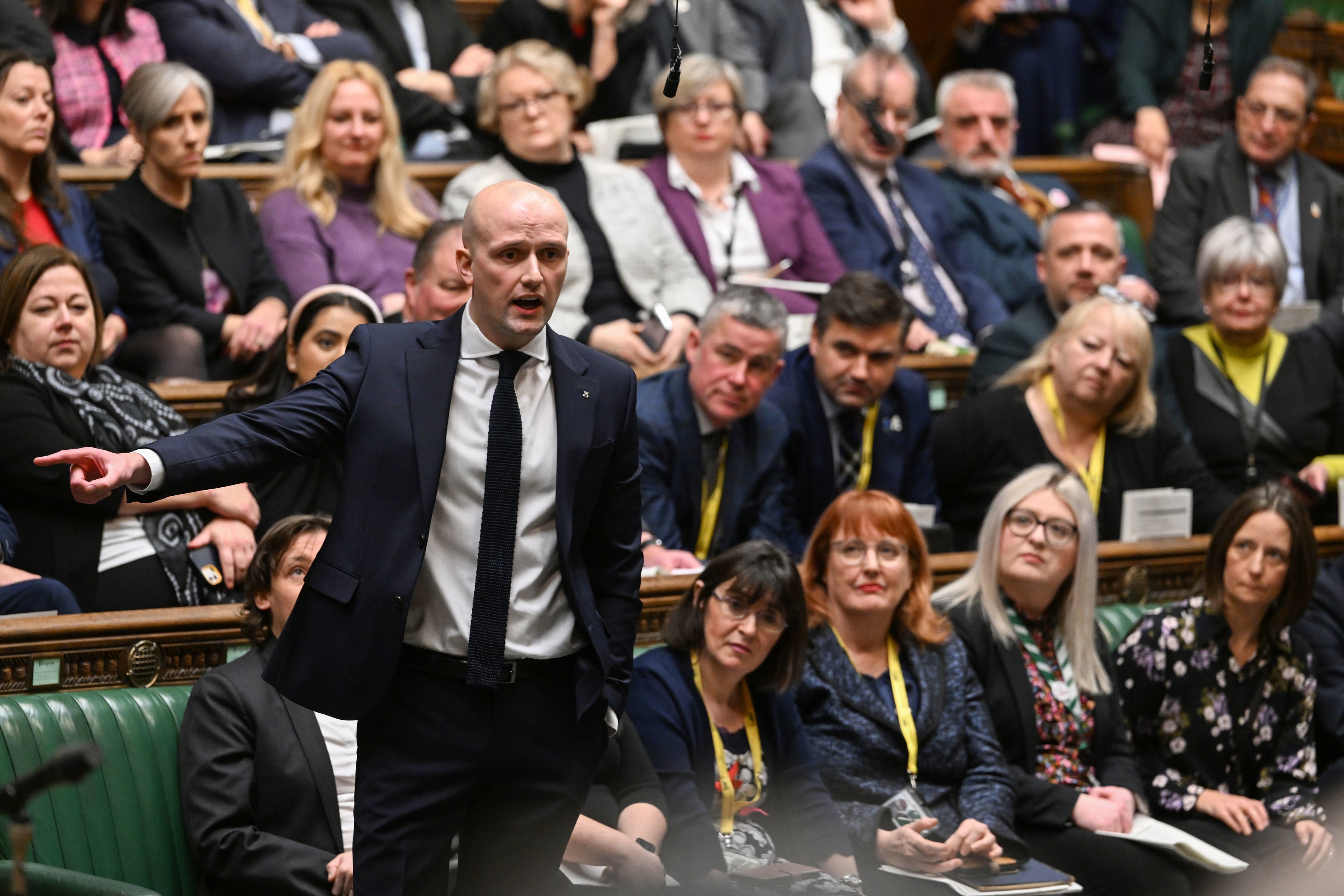Fresh faces for the SNP at Westminster but not all are smiling
A new look to independence in the House of Commons but some old grievances, as Sean O’Grady explains


Stephen Flynn took over as leader of the SNP in Westminster this week and made a good first impression at Prime Minister’s Questions. He has only been an MP since the most recent election in 2019 and is all of 34 years of age, but possesses a confidence and fluency on the floor of the Commons. He told Rishi Sunak he needs to “up his game” and deftly threw some shade on Labour, portraying Keir Starmer and his party to be Tory-lite.
The Aberdeen South MP might also be given some credit for his audacious bid to usurp his predecessor, Ian Blackford, whose appearance at PMQs was guaranteed to raise performative groans from the Tory benches. That tactic will be harder to deploy when the energetic and forceful Flynn rises to his feet.
Much thanks, however, is he getting from his colleagues. You’d be forgiven for thinking that someone had passed a law decreeing that Scottish political honeymoons be rendered as short as possible, such has been the reaction to Flynn’s arrival. Blackford stood down rather than fight the Flynn challenge head-on but tells Talk TV, rather earthily, that he would and should have won if he wasn’t so noble as to party and nation first: “I could have seen this off, I believe I would have won if I'd put myself forward ... some people have a different way of wanting to do things and I think it’s fair to say that some people probably wanted to see the end of my backside off the front bench. That's fine. They're entitled to that.”
In the event, Flynn won the contest against the only other candidate, Alison Thewlis, by 26 votes to 17. The SNP also has a new deputy leader at Westminster, Mhairi Black, who was first elected to parliament aged 20 and is only 28 now, giving the party a youthful image. Though the pair are no less committed to Scottish independence than their predecessors, and no less scornful of their unionist opponents, they seem to mark a change in approach. On balance, they may be less a branch office of the SNP hierarchy in Holyrood and seem less keen on portraying Scotland as an enslaved colony of Westminster. That is the sort of stuff that Nicola Sturgeon comes out with. There’s also a difference in emphasis on North Sea oil; and the parliamentary group has had its share of scandals over the past few years.
At any rate, there are ructions. There’s to be a “new look” team, starting with chief whip Owen Thompson, replaced by Martin Docherty-Hughes. Stewart McDonald has also announced he is stepping away from the front bench.
Pete Wishart, a former keyboard player with Big Country and Runrig and one of the party’s more engaging souls, has also stood down from the shadow team, but more noisily. He hasn’t bothered to hide his ire in a letter to Flynn: “I remain bemused as to the reasons why you felt it was necessary to seek a change in our leadership, particularly when we see yesterday’s opinion poll, which shows support for independence at a near all-time high and support for the SNP at Westminster at an unprecedented 51 per cent.
“Usually change of this significance accompanies failure, whereas we are looking only at sustained and growing success as a movement and party. I am sure that this is something that will become apparent to me during the course of your leadership.”
Flynn and Black have their work cut out to appease the discontented in Westminster and the displeased in Edinburgh. But the new gang in charge in the Commons is a sign that at least some in the party are thinking creatively about their path to independence.



Join our commenting forum
Join thought-provoking conversations, follow other Independent readers and see their replies
Comments